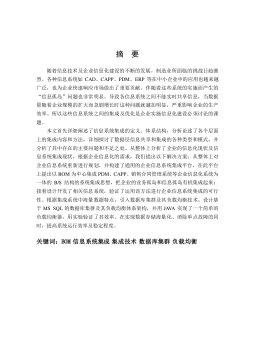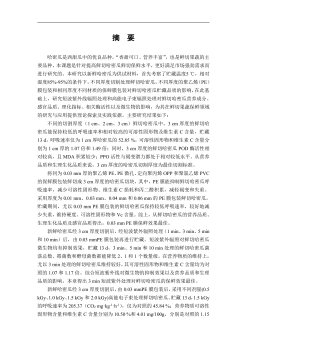非英语专业口语教学中的情感因素研究
VIP免费
ii
ABSTRACT
This thesis is an empirical research, which intends to study the impacts of affective
factors on non-English majors’ oral English acquisition. Under the instruction of
Stephen Krashen’s Affective Filter Hypothesis and other widely-accepted theories, the
effect of significant affective factors including motivation, attitudes, anxiety and
inhibition have been investigated to find their impact on oral English acquisition.
Accordingly, affective teaching strategies are proposed and employed in the teaching
practice, in attempts to develop a more effective teaching approach for non-English
majors’ oral English class.
The study is designed to reply to the following questions:
1) How and to what extent can affective factors influence college students’ oral
English competence?
2) Which affective factor plays the most significant role in students’ oral English
acquisition? What are the differences between good English speakers and relatively
poor speakers in this aspect?
3) In the process of oral English teaching, what can be done to take advantage and
alleviate the weaknesses of affective factors?
To answer these questions, the author carries out the research as follows.
The thesis begins with a brief retrospect of the theories, both previous and present,
on affective factors and affective teaching home and abroad. Then, an investigation was
carried out among 117 non-English sophomores in the University of Shanghai for
Science and Technology with the assistance of oral English tests, questionnaires and
class experiment. In this process, interviews among participants are employed during
the process to learn about participants’ ideas and make timely adjustment.
According to the research, results can be concluded as follows:
Firstly, there is a close correlation between affective factors and oral English
achievement. Among various affective variables, the integrated affective variable of
anxiety and inhibition turns out to be the most significant one that impedes oral English
communication.
Secondly, there are apparent differences in the experience of FLA between good
English speakers and relatively poor speakers. The degree that students are influenced
by affective factors contributes to the difference of their oral English achievement.
iii
Thirdly, to most non-English majors, classroom is the main environment of their
oral English learning as well as the place where they experience the impacts of affective
factors most. For oral English learners, fear of negative evaluation is the most
influential type of foreign language anxiety, while social anxiety and test anxiety are the
most dominant FLA sources in oral English classroom.
Based on the research results, a communicative teaching plan with affective
strategies has been designed and put into the teaching practice for a semester, intended
to create a favorable learning atmosphere and test the effect of suggested affective
teaching strategies.
In the final part, the thesis sums up the theoretical and practical significance based
on the findings of the study, points out the limitations and proposes suggestions for the
further research in this area.
Key words: Affective Factors, Oral English Teaching, Foreign
Language Acquisition
iv
摘 要
本文是一篇实证研究,旨在探讨情感因素对高校非英语专业学生英语口语习
得的影响。论文主要以 Stephen Krashen 的情感过滤假说和情感因素研究领域其他
广为认可的相关理论为指导,分析动机、态度、焦虑及抑制等主要情感因素对非
英语专业大学生口语习得的作用和影响,在此基础上将情感教学策略应用于实际
教学,探索更为有效的英语口语教学方法。
该研究力求解答以下问题:
1) 各种情感因素会对非英语专业学生口语习得产生怎样的影响?其影响程
度如何?
2) 哪种情感因素在英语口语习得过程中产生最为显著的作用?就这一方面
而言,口语优秀的学生和口语较差的学生存在哪些差异?
3) 在大学英语口语教学过程中,教师应怎样趋利避害,充分发挥情感因素的
积极作用?
研究将从以下方面展开:首先,论文对国内外情感因素和口语教学方法的相关
研究进行简要回顾;其后,通过口语测试、问卷调查、课堂实验等形式,对 117
名随机抽选的上海理工大学非英语专业大二学生展开调查,在此期间,作者通过
访谈的形式了解受试学生的看法,以便及时对实践过程进行适当调整。
调查结果如下:
首先,情感因素与英语口语习得之间存在着密切联系。在诸多情感因素中, 焦
虑和与其密切相关的抑制因素是口语交流过程中的最大障碍。
其次,在受情感因素的影响方面,口语优秀的学生与口语较差的学生存在显
著差异,这也是造成在相同教学环境下接受教育的学生之间口语学习效果差异显
著的重要原因之一。
此外,对于大部分非英语专业学生,课堂是其口语学习的主要场所,也是其
在口语习得过程中受情感因素影响最多的地方。调查发现,对英语口语学习者而
言,恐惧负面评价是外语焦虑的主要类型,而社交与测试焦虑是产生外语焦虑的
最重要根源。
以上述实验结果为依据,笔者将情感因素融会于课堂设计并应用于交际教学
实践,为学生口语学习营造有利的学习环境,同时通过一学期的课堂实践验证研
究提出的情感教学策略在口语教学中的实际作用。
最后,以实验结果为依据,论文总结了此次调查研究的理论和实践意义,指
出了该研究仍存在的不足,以期为今后该领域的深入研究提供建议和参考。
关键词:情感因素 英语口语教学 外语习得
v
List of Abbreviations
CET-SET………………CET Spoken English Test
ESL…………………....English as a Second Language
EFL……………………English as a Foreign Language
FLCAS………………...English Language Classroom Anxiety Scale
SLA……………………Second Language Acquisition
FLA……………………Foreign Language Anxiety
TESL…………………..Teaching English as a Second Language
TEFL…………………..Teaching English as a Foreign Language
L1……………………...the First Language (native language)
L2.……………………..the Second Language
FL……………………...Foreign language
ALM…………………...The Audio-lingual Method
CLL…………………....Community Language Learning
CLT……………………Communicative Language Teaching
vi
Contents
Acknowledgements……………………………………………………......i
Abstract……………………………………………………………….......ii
摘要..............................................................................................................iv
List of Abbreviations……………………………………………………...v
Contents…………………………………………………………………...vi
Chapter One Introduction……………...………………………………………1
1.1 Background of the Study…………………….……………………….......1
1.2 Significance of the Study………………………………………………...2
1.3 Organization of the Thesis……………………………………………….4
Chapter Two Literature Review……………………………………….……...5
2.1 Affect and Affective Factors…………………………………….………5
2.1.1 Affective Variables……………………………………..…………6
2.1.1.1 Motivation…….………..........………………...….………7
2.1.1.2 Attitudes……….…….…………....………………………7
2.1.1.3 Anxiety and Inhibition…....……………………………....8
2.1.1.4 Personality…….…….….………………………………...9
2.1.1.5 Self-Esteem…...………………………………………...10
2.1.1.6 Empathy………...………………………………………11
2.1.1.7 Risk-taking…...…………………………………………11
2. 2 A Retrospect of Typical Oral Language Teaching Methods…………12
2.2.1 The Direct Method………….……………….…………………12
2.2.2 The Audio-lingual Method (ALM)….…………………………...13
2.2.3 Audiovisual Method……………….…………………………….14
2.2.4 Community Language Learning (CLL)……....………………15
2.2.5 The Natural Approach………………….………………………..16
2.2.6 Communicative Language Teaching (CLT)........………………..17
2.3 Summary………………………………………………….…………..18
Chapter Three Theoretical Basis of the Research…….………………19
3.1 Stephan Krashen’s Affective Filter Hypothesis……………………….19
vii
3.2 Anxiety…………………………………………..……………………20
3.2.1 Definition.………………………………………………………20
3.2.2 Language Anxiety…………….………………………………...20
3.2.3 Foreign Language Anxiety (FLA)………...…………………21
3.2.3.1Types of Foreign Language Anxiety…….…………..........21
3.2.3.2 FLA Sources…….…....….………….…………….........22
3.2.3.3 The Function of Foreign Language Anxiety………..........24
Chapter Four Research Methodology and Application……………25
4.1 Research Questions…..……………….......………………………….25
4.2 Subjects……………………………………………............................25
4.3 Research Instruments………………………………………………...26
4.4 Research Procedures………………………………………………....26
4.5 Data Analysis…………………………………………………….......27
4.5.1 The First Oral English Test……………………………………27
4.5.2 Questionnaires……….……….………………….……………27
4.5.2.1 Questionnaire on Affective Factors in College Students’
Oral Communication…………….……………………....28
4.5.2.2 Foreign Language Classroom Anxiety Scale..........…32
4.5.2.3 Implications for Oral English Teaching....….……….37
4.5.3 The Final Oral English Test…………..………….…………...43
4.5.4 A Sample of An Oral English Class..………….…….……….44
4.5.4.1 Class Description…………………………..………...…44
4.5.4.2 A Lesson Plan….…………………….…………………45
Chapter Five Conclusion…....................................................................55
5.1 Major Findings…………....…..……....………………………….....55
5.2 Limitations of the
Study.…………………………………………..…55
5.3 Suggestions for Further Research…….…...…………………………56
5.4 Conclusion of the Paper………..…….………………………………56
Appendices………………………………………………………………57
Bibliography…………………….………………………………………76
Chapter One Introduction
1
Chapter One Introduction
1. 1 Background of the Study
Since China resumed National College Entrance Examination in 1978, college
English teaching for non-English majors has witnessed great development of English
teaching and acquisition.
With the rapid development of the society and economy after China’s entry into
WTO, the connection and cooperation between countries are constantly strengthened.
The exchange of economy, technology, and culture between countries becomes much
deeper and more active than ever before. Accordingly, the “universal language” English,
especially oral English, plays a more and more significant role in this global
communication process. Bearing the mission of the times, college students, evidently
our most valuable human resources in the 21st Century are confronted with a higher
demand for their oral English proficiency.
This trend also pushes the demand for oral English teaching to a higher level. As
College English Curriculum Requirements (2007) prescribes, English is an important
compulsory course for non-English majors. And the objective of College English is to
develop students’ ability to use English in a well-rounded way, especially in speaking
and listening; colleges and universities should lay more stress on the cultivation of
learners’ listening and speaking abilities, so that students can communicate effectively
in their future studies and careers as well as social interactions, in both oral and written
forms.
According to the Basic Requirements for Speaking, College English Curriculum
Requirements (2007), students should be able to communicate in English in the learning
process, to carry out discussions on a given theme, and to talk about daily topics with
people from English-speaking countries; They should be able to give, after some
preparation, short talks on familiar topics with clear articulation and basically correct
pronunciation and intonation; They are also expected to be able to use basic
conversational strategies in a dialogue. Beyond that, the Higher Requirements for
Speaking, College English Curriculum Requirements (2007) prescribes that “Students
should be able to conduct dialogues or discussions with certain degree of fluency and
accuracy on general or specialized topics, and to make concise summaries of extended
texts or speeches in difficult language. They should be able to deliver papers at
A Study of Affective Factors in Oral English for Non-English Majors
2
academic conferences and participate in discussions”.
Furthermore, CET-SET (CET Spoken English Test) has been carried out in more
and more cities since November 1999. By 2004, there have already been 34 cities of 28
provinces carrying out CET-SET1.
Realized the importance of oral English, more and more colleges have set or are
planning to set oral English classes for non-English majors who have adequate
competence and interests in oral English acquisition. Consequently, a considerable
number of foreign teachers, advanced facilities and teaching materials have been
brought in. However, the effect is still far from satisfactory. For example, many oral
English classes are still teacher-centered. The teacher is regarded as the “dominator” of
the class, who often focuses on infusing the language points to students without paying
much attention to students’ needs for affective interaction. In such circumstances,
students gradually become passive recipients of transmitted information, and lose the
interest of practicing oral English.
Meanwhile, the phenomenon of “dumb English” is still quite prevalent among
college students, especially for non-English majors. Although many students have built
a solid English foundation after studying English from primary school to college, some
even have passed the CET Band 4 or CET Band 6, hardly can they speak English
fluently and appropriately. When it comes to a situation to speak English, the most
ordinary answer you can expect from a student is “Sorry, my English is poor.”
Then why on earth are these college students who have good command of listening,
reading, writing and even translating still trapped in such an embarrassment? Among the
varied causes, the effect of inner factors such as affective variables becomes a major
concern of many linguists and educators.
1.2 Significance of the Study
As far as affective factors and affective teaching are concerned, many famous
linguists and researchers have done investigations in this field. Just mention a few,
Skehan discovered that personality has an impact on learners’ ESL/EFL oral acquisition
( Skehan, 1989:100-109); Ellis and Brown found that learners’ motivation and learning
strategies influence learners’ acquisition of speech directly (1994:508-513; 1980: 87-89);
Alexander Guiora, a researcher in the study of personality variables in second language
learning, proposed the theory of language ego to account for the identity a person
1Retrieved 20 January, 2009, from www.cet.edu.cn.
Chapter One Introduction
3
develops in reference to the language he/ she speaks (Guiora et al., 1972). However,
most of these researches mainly took children or high school students who learn English
as a second language as their subjects, few researches have been performed among
non-English major undergraduates who learn English as a foreign language. While in
fact, it is this group that represents the most typical English learners of the largest
number in our country.
Through oral English class observation, the author found that most college students
would rather listen and wait than speak voluntarily in oral English class. They are not
active even when they are asked to speak or attend certain English-talking activities in
class. Here affective factors serve as the major causes for their reluctance for oral
practicing. Many students cannot help feeling anxious or under great emotional pressure
when they speak English before others: some students become really nervous when they
are asked to answer questions, some worry about losing face because of their “poor”
pronunciation and limited vocabulary, some fear that their errors may be criticized or
laughed at; a few students even quit learning their oral English as they don’t have
confidence in themselves or hold that oral English has nothing to do with passing
certain examinations etc.
Another possible reasons for that is the inhibition that may originate from the
traditional Chinese value like “silence is gold”, and “still waters run deep”. Accordingly,
good speakers don’t talk much to avoid being regarded as talkative or showing-off,
while relative poor speakers would rather choose silence as their cover to protect
themselves from being looked down upon for their “poor” English. Here Mark Twain’s
quip that “it’s better to keep your mouth closed and have others think you are ignorant
than to open it and remove all doubt” may be a vivid description of their unconscious
apprehension.
All these phenomena remind us that affective factors may influence learners’ oral
English acquisition to much extent. If not handled well, these affective obstacles will
surely impede learners’ oral English achievement.
Just as the old saying goes, “Practice makes perfect”, oral proficiency can only be
acquired through speaking. Likewise, the communicative ability can only be enhanced
from oral communication. Therefore, to find out how the affective factors affect
non-English majors’ oral English acquisition and help students enhance their oral
English proficiency become the urgent task for oral English teachers, which is also the
摘要:
展开>>
收起<<
iiABSTRACTThisthesisisanempiricalresearch,whichintendstostudytheimpactsofaffectivefactorsonnon-Englishmajors’oralEnglishacquisition.UndertheinstructionofStephenKrashen’sAffectiveFilterHypothesisandotherwidely-acceptedtheories,theeffectofsignificantaffectivefactorsincludingmotivation,attitudes,anxiet...
相关推荐
-
跨境电商商业计划书模版VIP免费

 2025-01-09 28
2025-01-09 28 -
跨境电商方案范文VIP免费

 2025-01-09 14
2025-01-09 14 -
创业计划书VIP免费
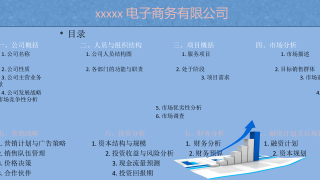
 2025-01-09 18
2025-01-09 18 -
xx生鲜APP计划书VIP免费

 2025-01-09 12
2025-01-09 12 -
跨境电商创业园商业计划书(盈利模式)VIP免费
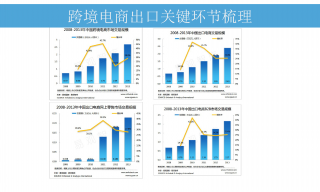
 2025-01-09 9
2025-01-09 9 -
跨境电商计划书VIP免费

 2025-01-09 14
2025-01-09 14 -
绿色食品电商平台项目计划书VIP免费

 2025-01-09 22
2025-01-09 22 -
农产品电子商务商业计划书VIP免费

 2025-01-09 9
2025-01-09 9 -
农村电商平台商业计划书VIP免费

 2025-01-09 14
2025-01-09 14 -
生鲜商城平台商业计划书VIP免费
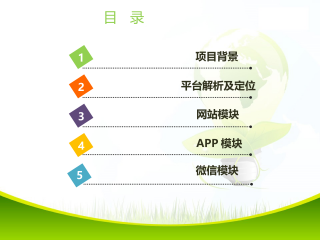
 2025-01-09 21
2025-01-09 21
作者:陈辉
分类:高等教育资料
价格:15积分
属性:84 页
大小:795.64KB
格式:PDF
时间:2024-11-19


